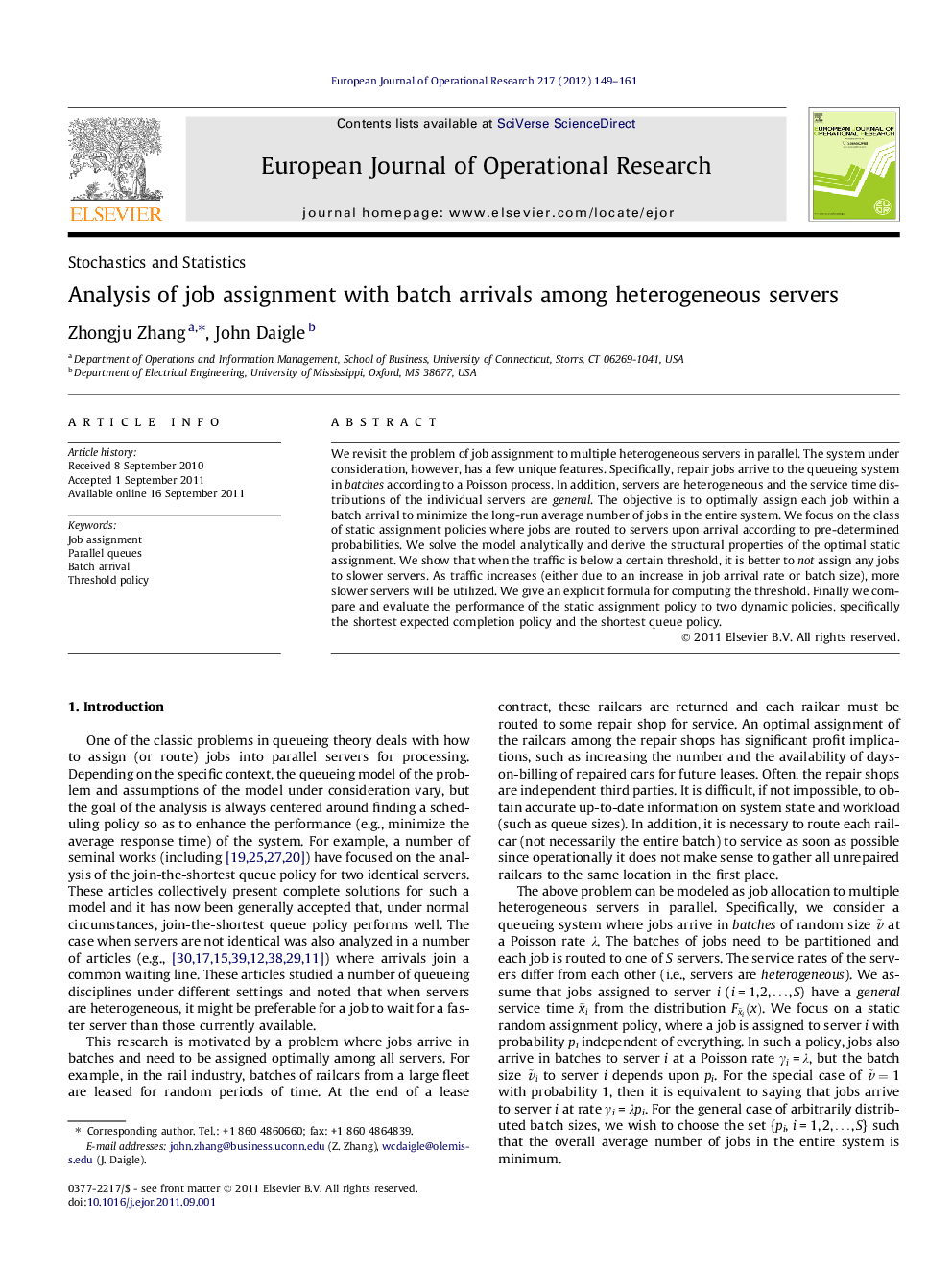| Article ID | Journal | Published Year | Pages | File Type |
|---|---|---|---|---|
| 478456 | European Journal of Operational Research | 2012 | 13 Pages |
We revisit the problem of job assignment to multiple heterogeneous servers in parallel. The system under consideration, however, has a few unique features. Specifically, repair jobs arrive to the queueing system in batches according to a Poisson process. In addition, servers are heterogeneous and the service time distributions of the individual servers are general. The objective is to optimally assign each job within a batch arrival to minimize the long-run average number of jobs in the entire system. We focus on the class of static assignment policies where jobs are routed to servers upon arrival according to pre-determined probabilities. We solve the model analytically and derive the structural properties of the optimal static assignment. We show that when the traffic is below a certain threshold, it is better to not assign any jobs to slower servers. As traffic increases (either due to an increase in job arrival rate or batch size), more slower servers will be utilized. We give an explicit formula for computing the threshold. Finally we compare and evaluate the performance of the static assignment policy to two dynamic policies, specifically the shortest expected completion policy and the shortest queue policy.
► We model a problem where jobs arrive in batches and need to be assigned to servers. ► When traffic is below a certain threshold, it is better to not assign any jobs to slower servers. ► The explicit formula for calculating the threshold is presented. ► The threshold-type routing policy extends to queueing systems with batch arrivals.
